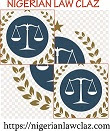Trusts
June 27, 2020
REMUNERATION AND REIMBURSEMENT OF TRUSTEES
As a general rule, a trustee is not to be paid for his services. In order words, in the administration of trust, the trustee is generally held to act gratuitously or voluntarily and is therefore not paid for his services. An appointed trustee could either from the settlor's family or could be a professional trustee such as: solicitors, trustee departments in banks, insurance companies and the public trustee who alone by virtue of sections 18 and 19 respectively of the Public Trustee Law and Act is statutorily enabled to be paid for his services.
The exceptions to the rule that trustees are not to be paid for their services are as contain there under:
1. Express authorisation of the trust instrument: charging clauses are interpreted strictly to the effect that if the solicitor or other agent is entitled to charge for professional services as held in Clarkson v Robinson, only the services which fall within the expression may be charged for. In Chalinder v Harrington, the authorising clause indicated that the solicitor should be allowed all professional and other charges for his time and trouble notwithstanding his being such executor and trustee. It was held that that did not entitle the solicitor to charge for work not professional which could have been done personally by a trustee who was not a solicitor. In Re Wesheimes, the trustee who was a keeper of antiquities at the British Museum was held to be entitled under a charging clause to charge for commission on the sale of the testator's work of art.
2. Authorisation by Statute: A public trustee is entitled to be paid for his services as of right under sections 19 and 18 of the Public Trustee Act and Public Trustee Law.
3. Authorisation by the Court: The court in special circumstances have inherent powers statutorily to order that a trustee be paid, especially where the trust proves enormous. See section 29 of the Trustee Law.
4. Authorisation through contract with beneficiaries: Although a trustee may earn remuneration through contractual dealing with the beneficiaries to that effect, however this is usually discouraged by the court on grounds of undue influence.
5. Expenses: A trustee is entitled to be reimbursed for out of pocket expenses. Such out of pocket expenses include: insurance premiums, agent's fees where the employment is justified and cost of litigation etc.
6. The rule in Cradock v Piper forms an exception too.












